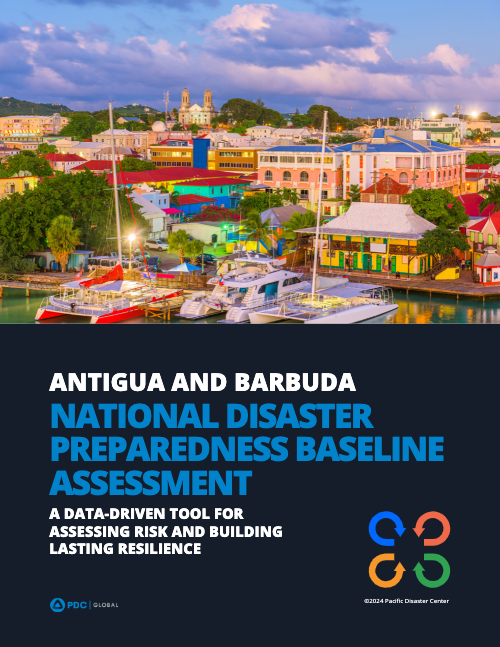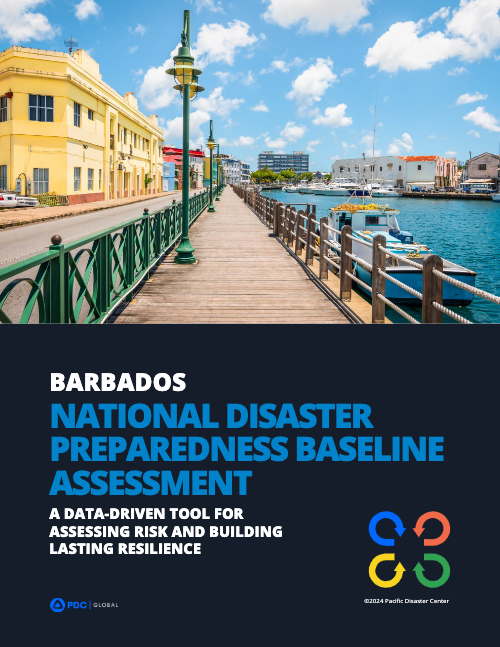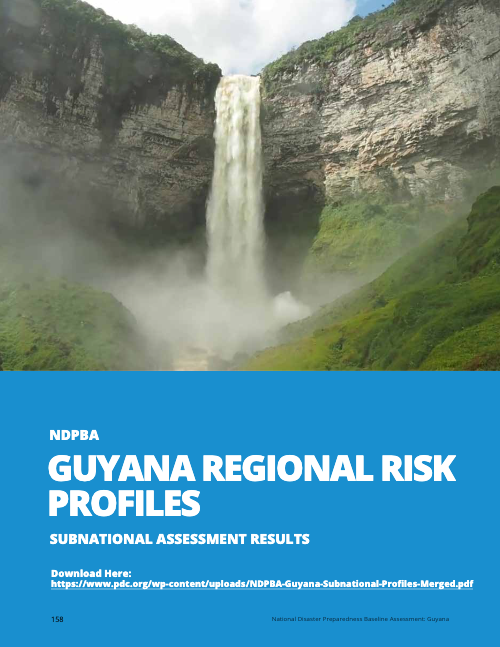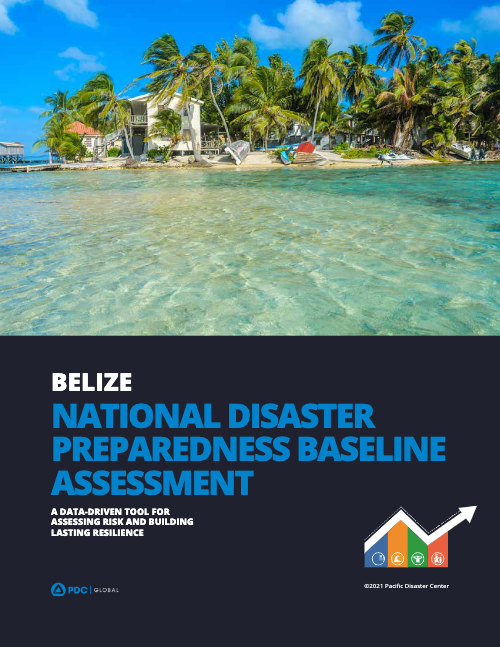Reduce disaster risk. Step into a safer world.
PDC’s National Baseline Assessment is more than just an assessment. It is a long-term program that helps nations operationalize the U.N. Sendai Framework—providing a sustainable system for understanding, updating, and applying critical risk information throughout all levels of decision making.
Download recent assessments
All National Baseline Assessment data and assessment findings are available at disasteraware.pdc.org.
NDPBA Program Overview
Through National Baseline Assessment program, stakeholders receive access to the necessary DisasterAWARE tools, scientific data, and evidence-based practices to effectively reduce disaster risk and plan for challenges into the future.
Objective and Benefits
The National Baseline Assessment aims to build a safer world through evidence-based decision making.
Key Benefits
Encourages multi-agency cooperation and strengthens disaster management networks

Collaborative Approach
The foundation of success for the National Baseline Assessment is through the collaboration of partners. Our approach includes continuous, multi-agency knowledge and data exchanges.
The assessment is conducted by PDC over a period of 12 months. Throughout the process a broad range of participants are engaged to provide subject matter expertise, supporting data and feedback necessary to complete the assessment.
About the process
The National Baseline Assessment is a 12-month, stakeholder-driven assessment with four key components:
Data and Information Exchange
The benefits of data sharing is multifold. Data sharing provides a holistic understanding of the factors that contribute to disaster risk at the national and subnational level. This helps guide future actions and investments to build resilience, save lives, and reduce losses. Data sharing also helps break down compartmentalization of information and encourages more connection and collaboration between decision makers.
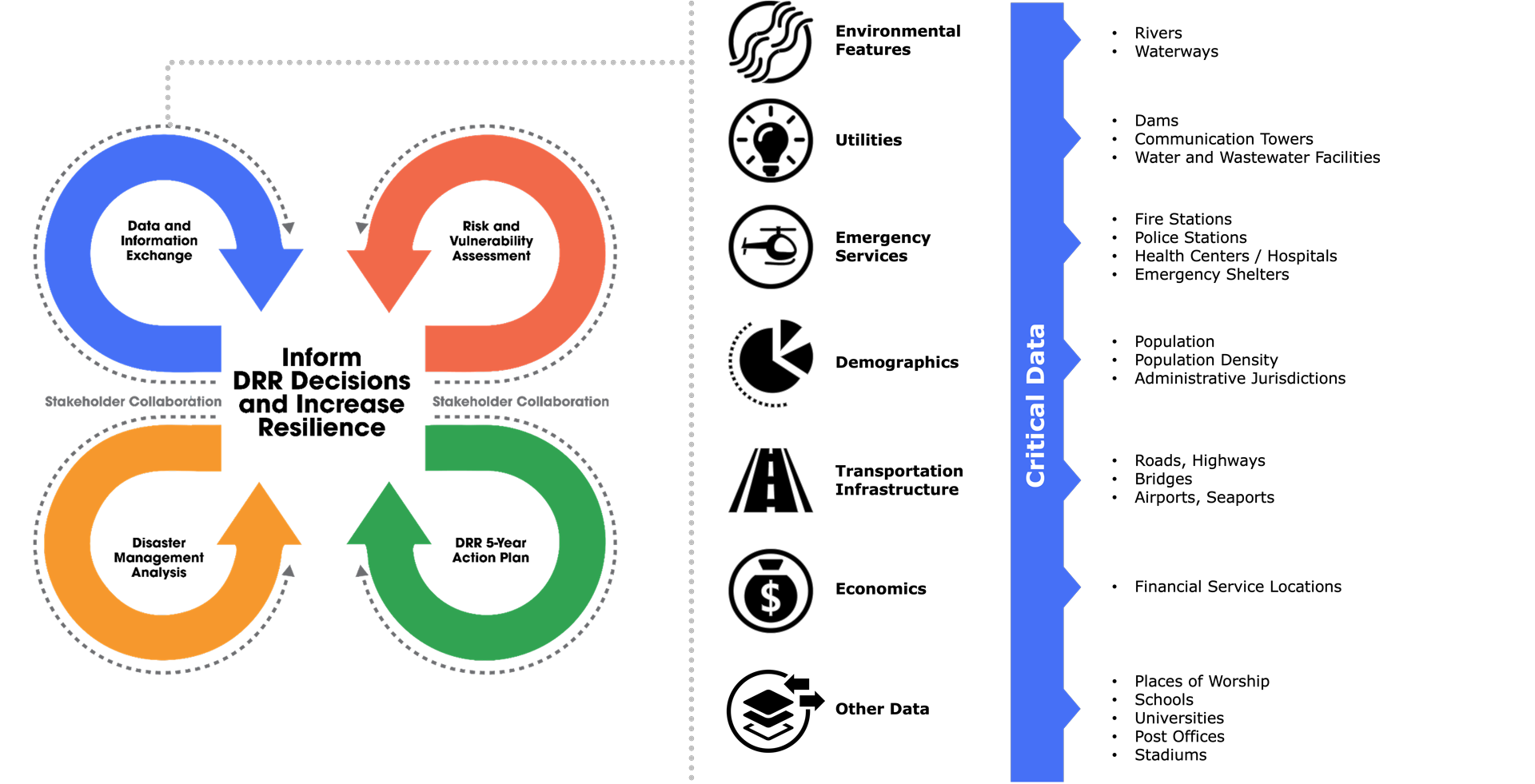

Disaster Management Analysis
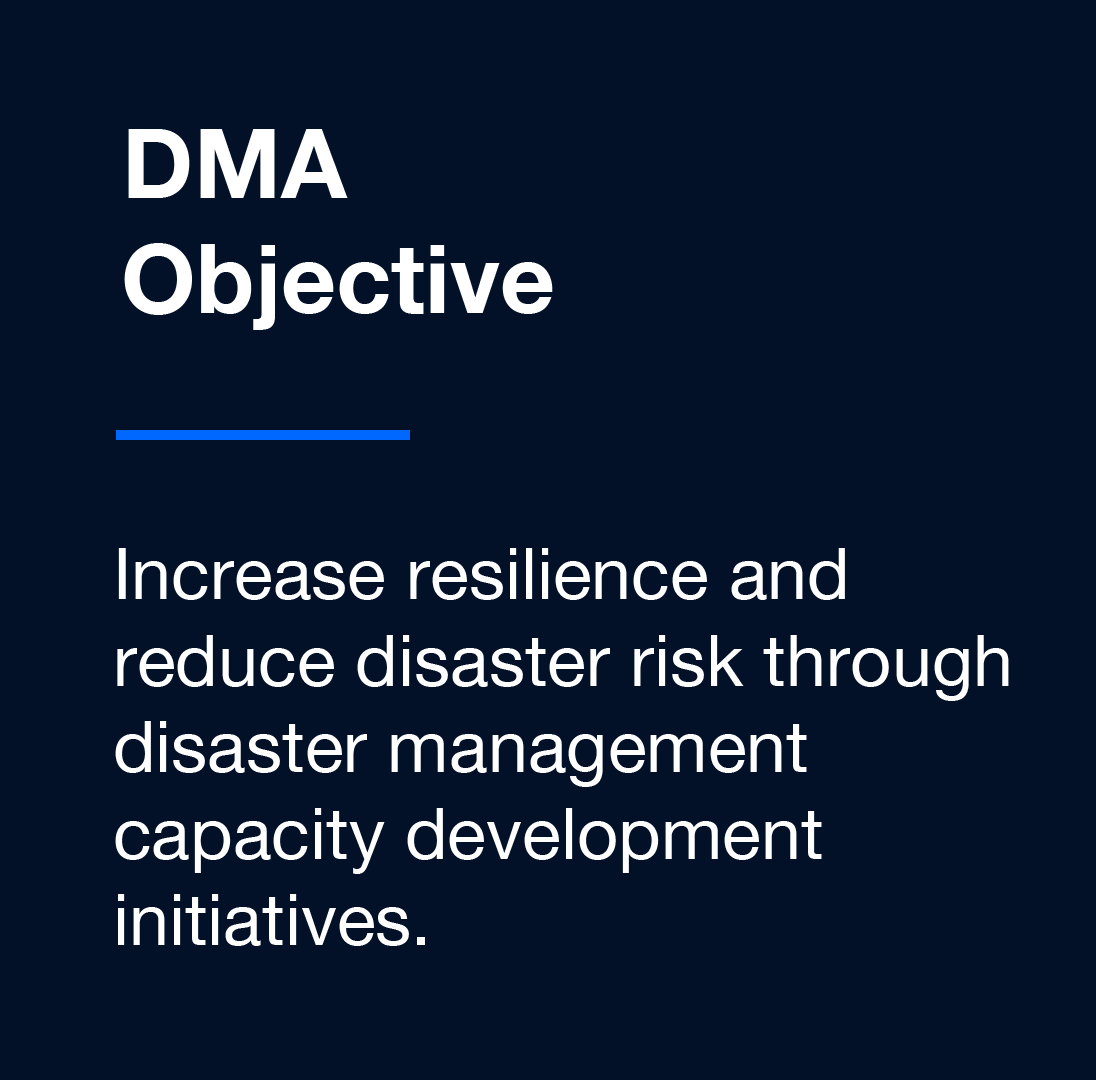
Applying Results
Assessment data and results are fully integrated into PDC’s DisasterAWARE platform for operational use by PDC’s partner nations. The data is designed to be easily updated over time to aid future decision making, planning, preparedness, and response activities.
Sample NDPBA
Product Outputs
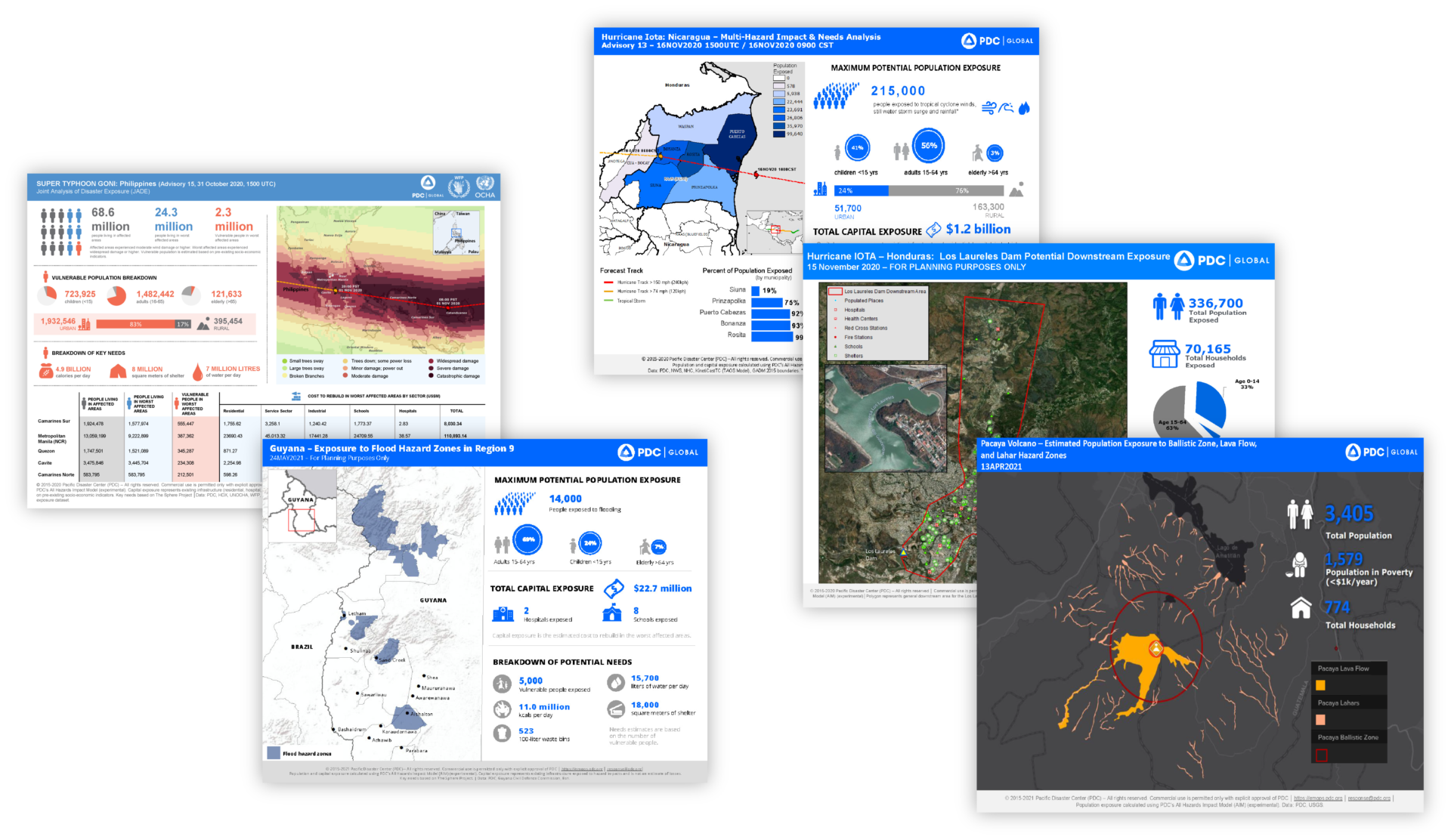
Want to learn more or speak with one of our team?


